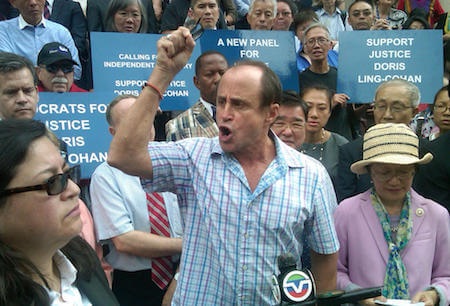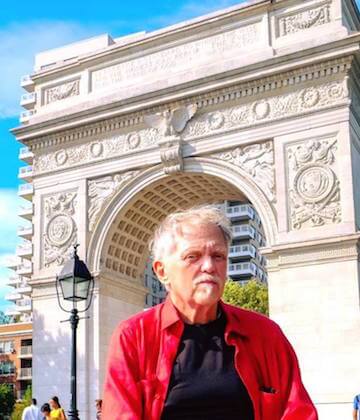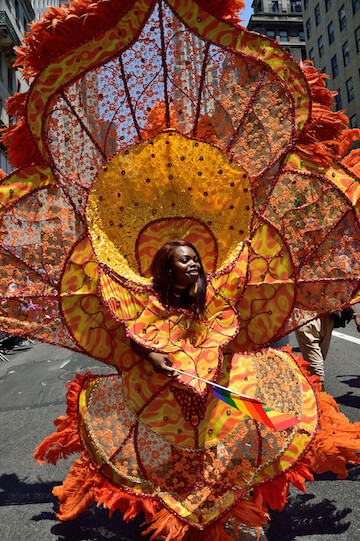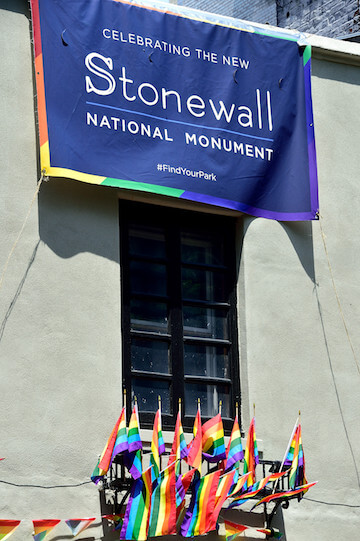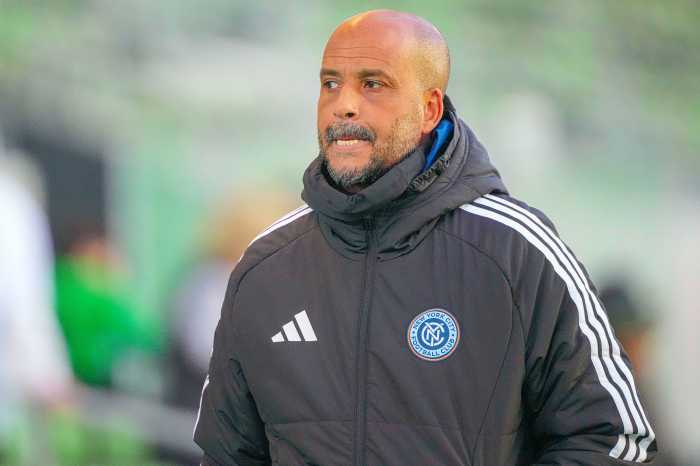Governor Andrew Cuomo stepped up his renewed push to legalize compensated gestational surrogacy on February 11 when he rolled out a new campaign intended to rally support for a bill that died in the State Assembly last year after clearing the State Senate.
Cuomo’s new effort to legalize the practice, which consists of allowing a prospective parent or parents to compensate a person to carry a baby who is not biologically related to the carrier, is called the “Love Makes a Family” campaign. That initiative features a petition allowing New Yorkers to express support for the proposal, a Love Makes a Family Council, and a campaign web page complete with video testimonials.
In addition to the testimonials, the campaign’s web page also includes facts about the bill and directions on how to sign the petition in support of the legislation. The Love Makes a Family Council includes nearly two dozen members, including Bravo TV host Andy Cohen, WIN president and former City Council Speaker Christine Quinn, Rod Townsend of the Stonewall Democratic Club of New York City, and Kiara St. James of the New York Transgender Advocacy Group.
“It is shameful that we are only one of three states that does not allow LGBTQ individuals and people struggling with fertility to use gestational surrogacy to start families,” Cuomo said in a written statement. “This antiquated law is repugnant to our values and we must repeal it once and for all and enact the nation’s strongest protections for surrogates and parents choosing to take part in the surrogacy process. This year we must pass gestational surrogacy and expedite the second parent adoption process to complete marriage and family equality.”
Cuomo already signaled his intention to prioritize the legislation this year when he included it in his State of the State agenda for 2020. The bill, led in the upper chamber last year by out gay Senator Brad Hoylman of Manhattan — who has two children through surrogacy with his husband, David Sigal — cleared the Senate but never came to a vote in the Assembly.
The bill wilted down the stretch last year after concerns were raised by lawmakers, including out lesbian Assemblymember Deborah Glick of Manhattan, who initially vowed to support the initiative but backed off and instead cited health concerns and framed it as an option that is primarily reserved for wealthier prospective parents. Having a child via surrogacy would be unattainable for many prospective parents because the process can cost tens of thousands of dollars.
Last year, Cuomo recruited Cohen, who had a child through surrogacy, to speak at events promoting surrogacy rights. The governor is again enlisting the celebrity this legislative session to lend his voice to the initiative. In a tweet on February 11, Cohen said he was on his way to Albany to meet with legislators to discuss surrogacy.
“I came to New York years ago so I could live my life openly, but I had to leave New York to start my family,” Cohen said in a written statement. “New York has long been a leader in advancing the interests of women and the LGBTQ community, and it’s time to keep that tradition alive by passing the Child-Parent Security Act. With the Love Makes a Family Campaign, Governor Cuomo is leading the charge to protect modern families.”
Lawmakers supporting the bill have argued that it contains the best protections in the nation for surrogates and imposes requirements on parents-to-be to cover all medical and legal fees for the carriers. The legislation would also remove “second-parent adoption” hurdles that have added extra steps for parents to complete in order for the non-biological parent to be recognized as the baby’s parent.
But it is not yet clear how the bill is shaping up this time around after it clearly was not satisfactory to a number of members of the Assembly. Hoylman and Assembly sponsor Amy Paulin of Westchester told Gay City News last month that they were working with advocates and lawmakers on finding ways to improve the legislation. Paulin hinted at the possibility of addressing concerns that women who are egg donors — the other key non-parent players in the process — often face rigorous medication and hormone treatment as part of the surrogacy process, though no concrete changes appear to be evident this early in the year.
“There may be some changes,” Hoylman said last month. “The basic concept is the bill that passed the Senate, and we are continuing to have discussions about further amendments to the bill. The governor’s proposal is in line with what we passed in the Senate. I’m eager to hear from colleagues.”


